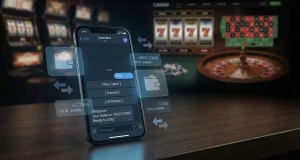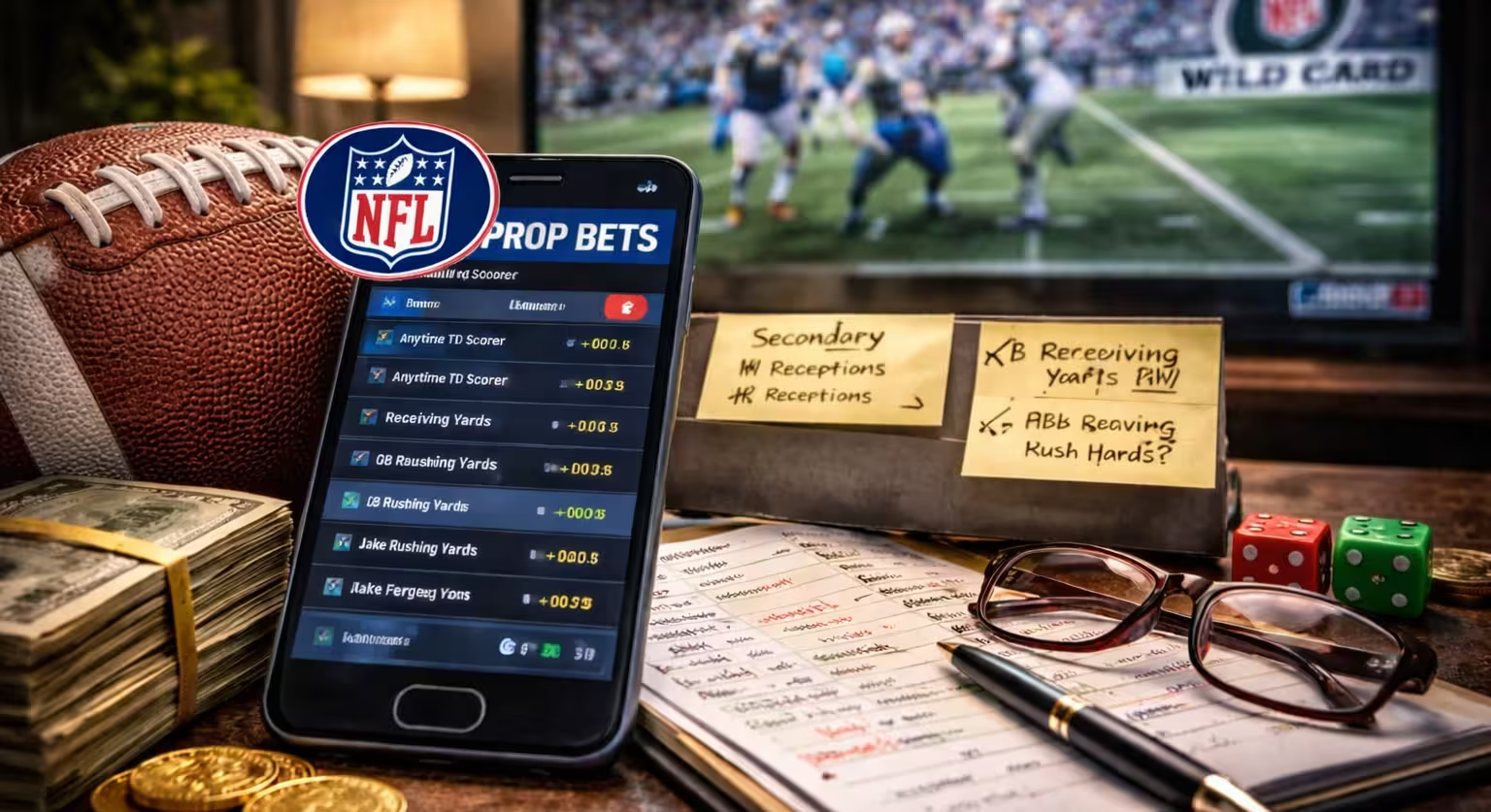Do Casinos Track You Across Platforms? What Gamblers Need to Know
The internet is always watching us. Click on something once on Instagram? Your algorithm will now show you 18 different versions of the thing you clicked on. And I could swear that my phone is listening to me, because if I just say something out loud, I’m targeted with the thing that I said.
Creepy right? So it’s not weird to have that same eerie feeling that a casino app knows what you want before you know what you want.
Stopped playing blackjack on BetMGM because you’re playing on Caesars instead? Oh, lookie there, an email from BetMGM just landed in your inbox with a bonus in hopes of luring you back to the platform.
Or maybe life was just lifing, as it tends to do, and you were busy for a week. Oop! Here comes a free spin offer for your fav slot game. Perhaps you were in Vegas, and when you got home, there was a follow-up email urging you to sign up for the mobile app. A coincidence? Nope!
Casino’s track you just like every other platform does. Only it’s not just limited to loyalty cards or cookies. It’s a whole ecosystem of tools that spans apps, desktops, websites, and physical casinos, and they’re all working in tandem to track behavior, spending, and engagement. For most players, the tracking is, for all intents and purposes, invisible, or they don’t notice. But for those who are paying attention, they see it as equal parts opportunity and equal parts intrusive.
If you feel like casinos are watching you, you are not paranoid. We are gonna unpack how cross-platform tracking works in gambling, what casinos are really doing with all of that data, and how it affects your gameplay, bonuses, privacy, and even your odds. Don’t be scared, a casino rep isn’t going to show up at your home if you don’t play. It’s not that deep. We just want to give gamblers some clarity about it. Because once you understand how the system works? You can use it to your advantage!
Why Casinos Track You in the First Place
Before we get to the part of how casinos track players across platforms, it’s really helpful to know the motivation that’s behind it. Casinos aren’t collecting your data “just because.” There are four main drivers, and each one plays a different role in how you’re seen—and rewarded—by casino systems.
Loyalty Programs & Bonuses
Tracking starts the second you sign up for an account or swipe a rewards card. Casinos use loyalty programs to tie your behavior to the perks, like free play, cashback, hotel upgrades, comped meals, and tier boosts. All slot spins, blackjack hands, and sportsbook wagers build a profile of what your value is to the house. That profile travels with you online and in person.
The more they know about your play? The more tailored the incentives will be. High-frequency slot players will get bonus spins on high-volatility games. A blackjack regular could get match bonuses or VIP event invites. It’s about retention and loyalty tracking? That’s the bait.

Player Behavior Analytics
Casinos are businesses, but they are also massive data companies, and their side hustle is gambling. All clicks, scrolls, deposits, game preferences, bet sizes, session lengths—they’re all logged. Casinos analyze this data to do the following:
- Identify trends (e.g., when you’re most likely to deposit)
- Test which games cause players to go for longer sessions
- Predict churn and intervene with offers
The analytics are automated using machine learning. It’s not a person watching you through your camera; it’s models that are calculating your habits and projecting what will keep you playing.
Marketing & Retargeting
If you’ve ever seen a casino ad on your Instagram feed immediately after logging into their app, congrats! You’ve been retargeted. This kind of tracking doesn’t always happen on the platform; it follows you around the internet.
Casinos and online sportsbooks use cookies, tracking pixels, affiliate URLs, and third-party ad platforms to deliver customized offers and banners to your social media, email inbox, and news sites that you frequent. The idea is to stay top-of-mind and get you to come back with minimal effort.
Fraud Prevention & Risk Monitoring
Not all tracking is about the offers. Some of it is about protecting the business. Casinos track user activity to flag the things below:
- Multiple accounts from the same person
- Credit card fraud
- Bonus abuse (redeeming the same offer by using different names)
- VPN and geo-spoofing attempts
This is where cross-platform tracking becomes more serious. Once flagged, a user could be restricted, shadow-banned (limited features without notification), or outright banned from promotions or play.
How They Track You Across Platforms
On to the mechanics! Most players know about cookies or using a login, but casino tracking goes way past that. Modern online gambling platforms tie multiple identifiers together, and sometimes they do it without your explicit permission.
How does it work? Look below:
When you create an account on BetMGM or FanDuel, you’re not registering for one device. That account is persistent across desktop, mobile browser, app, and is integrated with land-based loyalty programs. Your login not only tracks you; it unifies your actions across all touchpoints.
Logging in from a phone after playing on your laptop earlier that day? The system picks up right where you left off. Wagered $150 on roulette in person with your MGM Rewards number? The online app might offer a free sports bet to encourage cross-product play.
Even if you’re not logged in, casinos can still track you. Device fingerprinting collects unique technical details from your device, like your browser type, screen resolution, installed fonts, language settings, and hardware specs. When combined, the data can create a near-unique fingerprint.
Casinos use this method to:
– Detect multiple accounts using the same device
– Prevent players from avoiding self-exclusion lists
– Spot unauthorized access or bonus abuse
Unlike cookies, fingerprinting doesn’t necessitate user consent in most jurisdictions, and it survives even after you clear your cache or reinstall an app.
Cookies are those tiny data files that are stored on your device so it can remember preferences and activity. Most of us know about them, but a lot of players don’t realize how granular these cookies can be. They track the following things:
– Last login time
– Preferred games
– Abandoned deposits
– Mouse movement (yes, really on some platforms)
Web beacons (tiny invisible pixels) also allow casinos and their affiliates to monitor when you open emails, click promo links, or revisit a site. They’re the bread and butter for retargeting campaigns.
Geolocation is required by law in regulated markets. U.S.-based online casinos have to verify your physical location to comply with state-level licensing laws. But this tracking does more than just check your zip code—it records:
– Where you are playing from
– How long you are at that location
– If your device location and IP address match
Casinos can also analyze this data for behavioral patterns, like when you’re traveling, visiting a specific retail casino, or accessing from a hotspot or shared Wi-Fi (which could trigger fraud flags).
If you signed up for a casino after clicking a link on a sports blog, Reddit, or an influencer’s review, the casino knows exactly where you came from. Affiliate tracking links carry unique IDs that record:
– Which site referred you
– hat offers you clicked on
– What actions you took (deposit, play, withdraw)
The data feeds back into the casino’s CRM (customer relationship management) system and l influences the offers that you get in the future.
Cross-Platform Tracking in Practice
Next up, we’ll look at some common real-world scenarios where tracking is active and mostly covert.
Seamless Multi-Device Tracking
You log into BetMGM from your desktop and start playing slots. Later that night, you switch to the mobile app. Even without re-entering credentials (because of regular sessions), the system continues tracking your behavior. Your bonuses, preferences, and spend limit settings carry over.
You could get a push notification hours later offering bonus spins, because they know you left mid-session.

Physical-to-Digital Loyalty Linking
You swipe your Caesars Rewards card while playing blackjack at Caesars Palace. A few days later, you open the Caesars app at home. Not only is your tier progress visible, but your hotel stay and in-person play will have gotten you new online offers, like a bonus matched to your table game style.
This linking of land-based and online loyalty is becoming the standard at hybrid casino brands.
Tracking without Logging In
You hit up a casino’s site, browse some games, but you don’t create an account. The next day, you’re scrolling on social media, and up pops a casino ad offering $50 in free play if you sign up. You never even logged in! But with device fingerprinting, third-party cookies, or IP logging, the casino (and its ad partners) linked your visit to your current device session.
This kind of targeting is legal in most jurisdictions, and it’s super effective for the casinos.
How This Impacts You as a Player
Casino tracking has its pros and cons. It’s not always sinister, but it’s never neutral. Here’s what it means for your day-to-day gambling experience:
Pros
- Tailored Bonuses: Offers are based on your actual gameplay, not generic promotions. If you mostly play Megaways slots, your bonus spins will often be on Megaways titles.
- Cross-Platform Loyalty: You can earn and redeem points across land-based and digital platforms without jumping through hoops.
- Unified Wallets & History: Casinos can streamline your account, letting you deposit once and play on multiple verticals (slots, sportsbook, table games).
- Better Customer Support: When something goes wrong, the support team already has visibility into all of your recent activity.
Cons
- Loss of Privacy: If you value anonymity, casino ecosystems don’t make it easy to keep it. Even browsing without logging in isn’t undetectable.
- Behavioral Targeting: Retargeted ads will follow you across the web, and that reinforces gambling habits.
- Reward Systems Encourage Higher Spending: Loyalty schemes are tiered so that bigger spending unlocks exponentially better perks. This urges players to spend more than they planned to.
Can You Opt Out of Casino Tracking?
The short answer? Sort of. But not totally.
Adjusting Privacy Settings
All casinos allow you to adjust your cookie preferences or limit data sharing under their privacy policy. You can do these things:
- Log out and use incognito mode
- Decline marketing emails
- Delete cookies between gambling sessions
But these steps only limit the basic tracking. Fingerprinting, IP monitoring, and session analytics will still be active.
VPNs and Anonymous Play
Using a VPN to mask your location might block some data, but most casinos now prohibit VPN usage. You’ll often be locked out or flagged for verification. Also, anonymous play (without logging in) limits your bonus access and can trigger restrictions on deposits and withdrawals.
Regulatory Safeguards
In the U.S., protections are patchy. California’s CPRA gives residents some data access rights, but enforcement is light. In the EU, GDPR mandates data transparency and deletion rights, but most big online casinos operate outside of the EU’s jurisdiction.
Most U.S. players have limited recourse unless a casino’s practices directly violate licensing rules.
Expert Tips to Stay Informed and In Control
Here’s how to get out in front of the tracking without losing access to rewards or security:
- Don’t assume you’re anonymous online: Fingerprinting and geolocation mean your device is recognizable even without a login.
- Read the fine print: Terms of service and privacy policies are long for a reason. Look for how data is shared with any and all third parties.
- Compartmentalize: Use different email addresses, payment methods, or browsers if you want to separate sportsbook, poker, and casino activity.

- Use regulated casinos only: Only play on platforms that are licensed by your state’s gaming authority. They’re required to disclose data handling practices.
- Understand the value of your data: Casinos spend heavily to retain high-value players. If you’re getting offers, that means you’re profitable. Treat your time and data accordingly.
Conclusion: Casinos Track You, But It’s Not in a Big Brother Way
You are being tracked across platforms—but it’s not always as ookie as it sounds. For the most part, casinos use tracking to personalize offers, comply with legal requirements, and manage fraud. Still, it creates a digital footprint that follows you around, and it’s a presence that shapes everything from bonuses to deposit limits.
Here’s a quick recap of everything we covered about casinos tracking you across platforms:
- Yes, casinos track you across apps, sites, and even in person.
- They do it to personalize offers, manage loyalty, prevent fraud, and boost profits.
- You can limit tracking, but you can’t completely avoid it.
- Used wisely, tracking can work in your favor—but only if you know the rules.
If you’re going to play, play smart and only use trusted online casinos. Know what the house knows about you, and use that knowledge to try to stay a step ahead!

Matthew specializes in writing our gambling app review content, spending days testing out sportsbooks and online casinos to get intimate with these platforms and what they offer. He’s also a blog contributor, creating guides on increasing your odds of winning against the house by playing table games, managing your bankroll responsibly, and choosing the slot machines with the best return-to-player rates.








